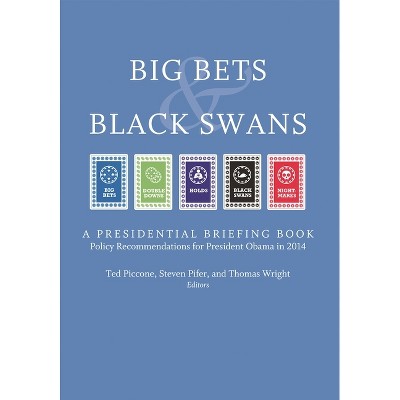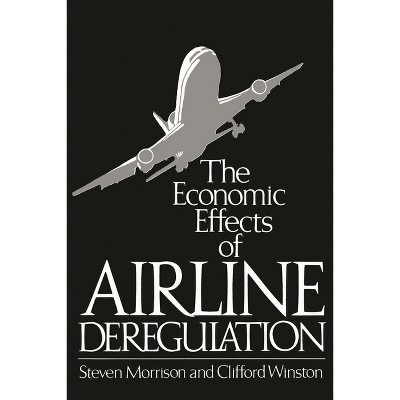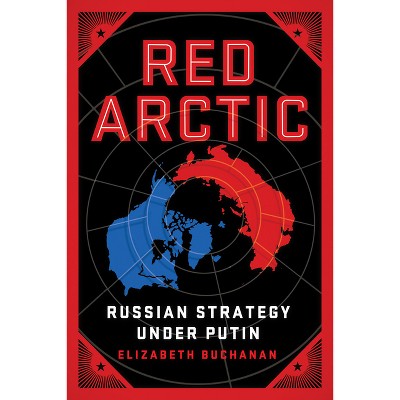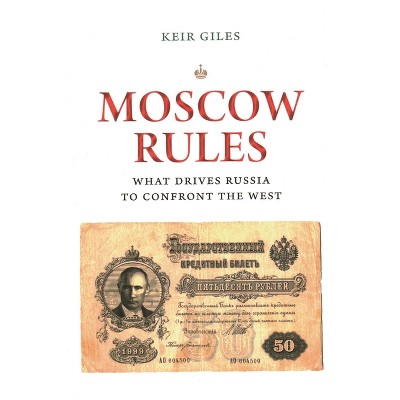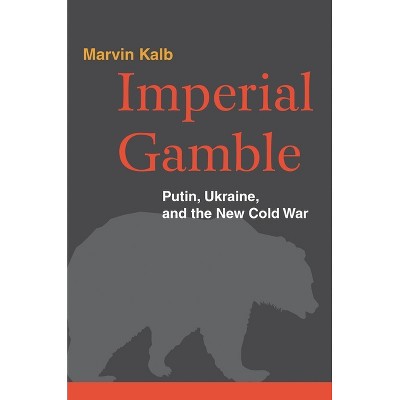About this item
Highlights
- An insider's account of the complex relations between the United States and post-Soviet UkraineThe Eagle and the Trident provides the first comprehensive account of the development of U.S. diplomatic relations with an independent Ukraine, covering the years 1992 through 2004 following the collapse of the Soviet Union.
- About the Author: Steven Pifer is a senior fellow in the Foreign Policy program at the Brookings Institution, where he specializes in Ukraine, Russia, and arms control.
- 382 Pages
- Political Science, World
Description
About the Book
An insider's account of the complex relations between the United States and post-Soviet Ukraine
The Eagle and the Trident provides the first comprehensive account of the development of U.S. diplomatic relations with an independent Ukraine, covering the years 1992 through 2004 following the collapse of the Soviet Union. The United States devoted greater attention to Ukraine than any other post-Soviet state (except Russia) after the breakup of the Soviet Union. Steven Pifer, a career Foreign Service officer, worked on U.S.-Ukraine relations at the State Department and the White House during that period and also served as ambassador to Ukraine. With this volume he has written the definitive narrative of the ups and downs in the relationship between Washington and newly independent Ukraine.
The relationship between the two countries moved from heady days in the mid- 1990s, when they declared a strategic partnership, to troubled times after 2002. During the period covered by the book, the United States generally succeeded in its major goals in Ukraine, notably the safe transfer of nearly 2,000 strategic nuclear weapons left there after the Soviet collapse. Washington also provided robust support for Ukraine's effort to develop into a modern, democratic, market-oriented state. But these efforts aimed at reforming the state proved only modestly successful, leaving a nation that was not resilient enough to stand up to Russian aggression in Crimea in 2014.
The author reflects on what worked and what did not work in the various U.S. approaches toward Ukraine. He also offers a practitioner's recommendations for current U.S. policies in the context of ongoing uncertainty about the political stability of Ukraine and Russia's long-term intentions toward its smaller but important neighbor.Book Synopsis
An insider's account of the complex relations between the United States and post-Soviet Ukraine
The Eagle and the Trident provides the first comprehensive account of the development of U.S. diplomatic relations with an independent Ukraine, covering the years 1992 through 2004 following the collapse of the Soviet Union. The United States devoted greater attention to Ukraine than any other post-Soviet state (except Russia) after the breakup of the Soviet Union. Steven Pifer, a career Foreign Service officer, worked on U.S.-Ukraine relations at the State Department and the White House during that period and also served as ambassador to Ukraine. With this volume he has written the definitive narrative of the ups and downs in the relationship between Washington and newly independent Ukraine.
The relationship between the two countries moved from heady days in the mid- 1990s, when they declared a strategic partnership, to troubled times after 2002. During the period covered by the book, the United States generally succeeded in its major goals in Ukraine, notably the safe transfer of nearly 2,000 strategic nuclear weapons left there after the Soviet collapse. Washington also provided robust support for Ukraine's effort to develop into a modern, democratic, market-oriented state. But these efforts aimed at reforming the state proved only modestly successful, leaving a nation that was not resilient enough to stand up to Russian aggression in Crimea in 2014.
From the Back Cover
An insider's account of the complex relationship between the United States and post-Soviet Ukraine
The Eagle and the Trident, the first comprehensive account of the development of U.S. relations with an independent Ukraine, covers the years 1991 through 2004, following the collapse of the Soviet Union. During that period, the United States devoted greater attention to Ukraine than any other post-Soviet state, except Russia. Here Pifer has written the definitive narrative of the advances and setbacks experienced by Washington and Kyiv while both countries worked to fulfill the promise of the newly independent Ukrainian state.
The relationship between the two countries moved from heady days in the mid-1990s, when they declared a strategic partnership, to troubled times between 2001 and 2004. The Eagle and the Trident describes how the United States has generally succeeded in its major foreign policy goals in Ukraine--notably the safe transfer of nearly 2,000 strategic nuclear weapons left there after the Soviet collapse. However, while Washington also provided robust support for Ukraine's effort to develop into a modern, democratic, market-oriented state, these efforts to reform the state proved less successful, leaving a nation that was not sufficiently resilient to stand up to Russian aggression in 2014.
Pifer, who served as the American ambassador to Ukraine during its early days of independence, reflects on what worked and what did not work in the various U.S. approaches toward Ukraine since independence. He also offers a practitioner's recommendations for current U.S. policies in the context of ongoing uncertainty about the stability of Ukraine and Russia's long-term intentions toward its smaller but important neighbor.
Review Quotes
"This is a nuanced and honest account, characteristic of the earnest Pifer. It is excellent that such an insightful and well-documented book has been published because too many myths have accumulated about what the United States has actually done in Ukraine, especially on the Russian side but also on the Ukrainian side."--Anders Aslund, U.S.-Ukraine Business Council
In this persuasive account of a quarter-century of relations between Washington and Kyiv, Steven Pifer explains the important stakes for the United States in Ukraine. Drawing on his extensive experience of government service--including as ambassador to Ukraine--he chronicles the successes and failures of U.S. policy in supporting Ukraine in its two major challenges: implementing economic and legal reforms and dealing with Russia. This is essential reading for understanding the past, present, and future of U.S.-Ukraine relations.--Angela Stent, Director, Center for Eurasian, Russian, and East European Studies; Professor of Government and Foreign Service, Georgetown University; and former U.S. National Intelligence Officer for Russia and Eurasia
This is the first book-length study of U.S. relations with Ukraine following its independence in 1991, and it is extremely well done: clearly written, deeply informed, and balanced.--Robert Legvold, Foreign Affairs
Ambassador Steven Pifer draws on a wealth of diplomatic experience to offer the most comprehensive first-hand account of the high and low points of US-Ukrainian relations. Written in lucid prose and a highly engaging style, this book is mandatory reading for college courses dealing with Russian Foreign Policy, European Security or Post-Communist Politics.--Dr. Serhiy Kudelia, Assistant Professor of Political Science, Baylor University
Ambassador Pifer has long been respected as a diplomat, policymaker, and commentator on the high-stakes challenges of our time. In The Eagle and the Trident, he has achieved a trifecta: an engaging memoir of his role in the painful rebirth of a long-oppressed nation; a must-read for historians and students of the post-Cold War period; and a highly relevant guide to the ongoing crisis among Ukraine, Russia, and the West.--Strobe Talbott, President, Brookings Institution, and former U.S. Deputy Secretary of State
How did Ukraine get into its current situation? Steven Pifer, in this remarkably well-documented book, shows us. From the euphoria of independence in 1991, to the elimination of nuclear weapons and working through a sea of corruption and venal politicians, here is the history of U.S. engagement with post-Soviet Ukraine, including what did not work. As Pifer demonstrates, there is more than enough blame to go around. The U.S. and EU do not escape unscathed. We need to rethink our approach to enforce reforms that will benefit the citizens of Ukraine.--Richard Armitage, Trustee, Center for Strategic and International Studies, and former U.S. Deputy Secretary of State
I am very much impressed by the political insights and broad historical perspective of The Eagle and the Trident. It should be an essential item in anyone's operational library, given the high probability that Ukraine will continue to be an important issue for the United States, for East-West relations, and as a critical test of Russia's ability to be a genuine European state.--Zbigniew Brzezinski, Counselor and Trustee, Center for Strategic and International Studies, and former U.S. National Security Adviser
About the Author
Steven Pifer is a senior fellow in the Foreign Policy program at the Brookings Institution, where he specializes in Ukraine, Russia, and arms control. A retired career Foreign Service officer, he served as U.S. ambassador to Ukraine from 1998 to 2000.Shipping details
Return details
Trending Non-Fiction







